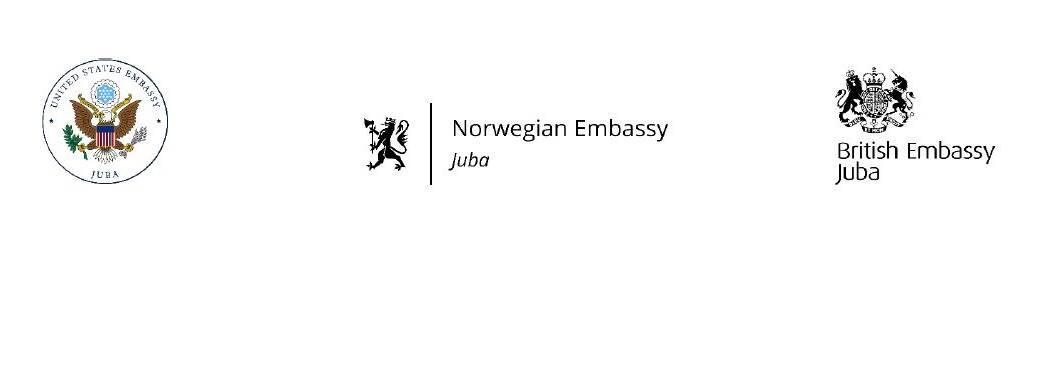I am speaking on behalf of the Troika – the United States, the United Kingdom, and Norway.
We wish Interim Chair Ambassador Charles Tai Gituai well as he returns to Kenya. We wish Ambassador George Aggrey Owinow the best as he begins his assignment as the new RJMEC chair.
We note with sadness that we cannot point to significant or consequential progress by the parties to the 2018 peace agreement in implementing their peace commitments. We can only point to how often RJMEC meetings have served to highlight this lack of progress.
When the transitional government announced its latest extension last September, it was a disappointment, but not a surprise, to those of us who had attended these monthly meetings.
It was not a surprise to those of us who recalled the RJMEC discussion of the previous extension in September 2022 and who had witnessed two years of RJMEC meetings repeatedly demonstrating no significant progress on the steps pledged in the so-called roadmap.
Indeed, almost seven years after the signing of the peace agreement, we see continued failure of political will on the part of its signatories to bring the transitional period to a peaceful and successful conclusion.
We see continued failure of political will to use public revenue appropriately.
We see continued failure of political will on the part of South Sudan’s leaders to meet the hopes of their own people and the expectations of international partners that the South Sudanese people will have peace and a government responsive to their needs.
The absence of steps since last September’s announcement of yet another extension leads us sadly to doubt the transitional government’s commitment to make this extension the last one. The patience of South Sudan’s partners and of its people is exhausted. Since September, far from seeing any progress in implementing the 2018 agreement, the situation in the country has only grown worse. Salaries remain unpaid, eroding even further public security and public services. Living standards have only deteriorated further. Not only has there been no progress in unifying the armed forces, we are seeing direct clashes between forces associated with the signatories in Western Equatoria and Upper Nile. This is in addition to violence in other parts of the country.
We appeal to all parties to the agreement to take urgent steps now to implement their commitments. There is no more time to waste. The signatories to the peace agreement must end the ongoing clashes before they escalate into broader, national conflict. But the clashes are just a symptom of the core problem: the fundamental problem continues to be the willful refusal to meet peace commitments and to use public revenue transparently and for public benefit.
Five months since the agreement to extend the transitional period, we note the authorities have not taken any of the steps necessary to create the conditions for peaceful and credible elections. Not least, this means fostering the civic and political space needed to give the people of South Sudan a voice in their country’s future. The ability of the National Security Service to arbitrarily detain people for peacefully expressing their views must end. We urge that the NSS Act be amended accordingly.
We call on the transitional government in the strongest terms possible to begin using public revenue to pay public sector salaries regularly, to ensure access to basic health and education services, to unify security forces, and to pay for implementation of other essential peace commitments.
It is important to note that the transitional government’s failure to use public revenue appropriately and transparently predates the conflict in Sudan and the disruption of the oil pipeline. Even today, despite the challenges, the transitional government still has the financial resources to pay salaries and provide other essential public services, if the political will exists.
Peace is our priority in South Sudan. Those around this table who share this priority must refuse to conflate “meetings” with progress. Those who come here to monitor and evaluate should do so honestly, objectively, and with candor.
Thank you.
